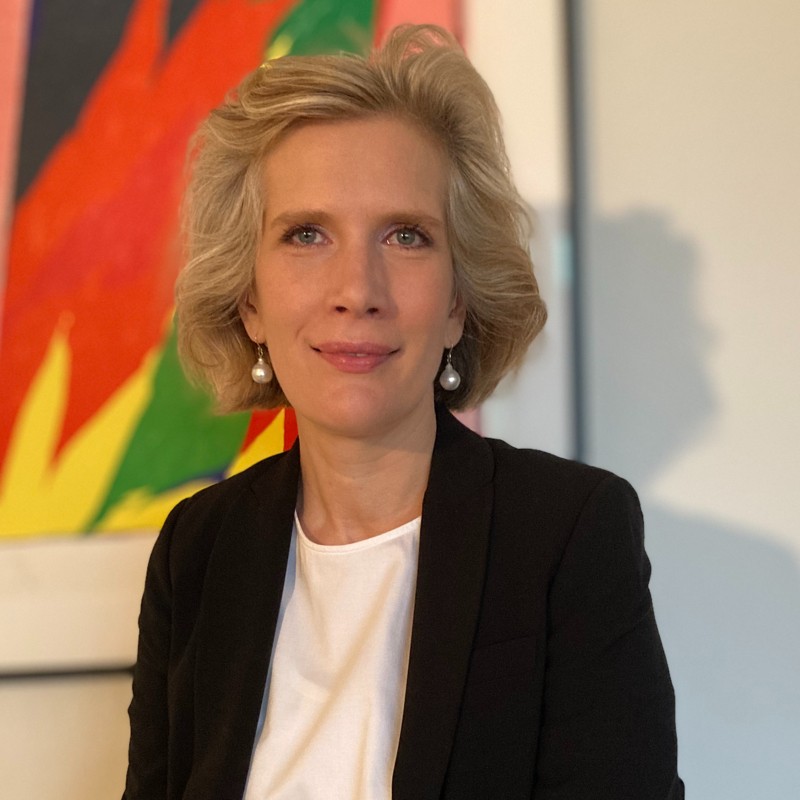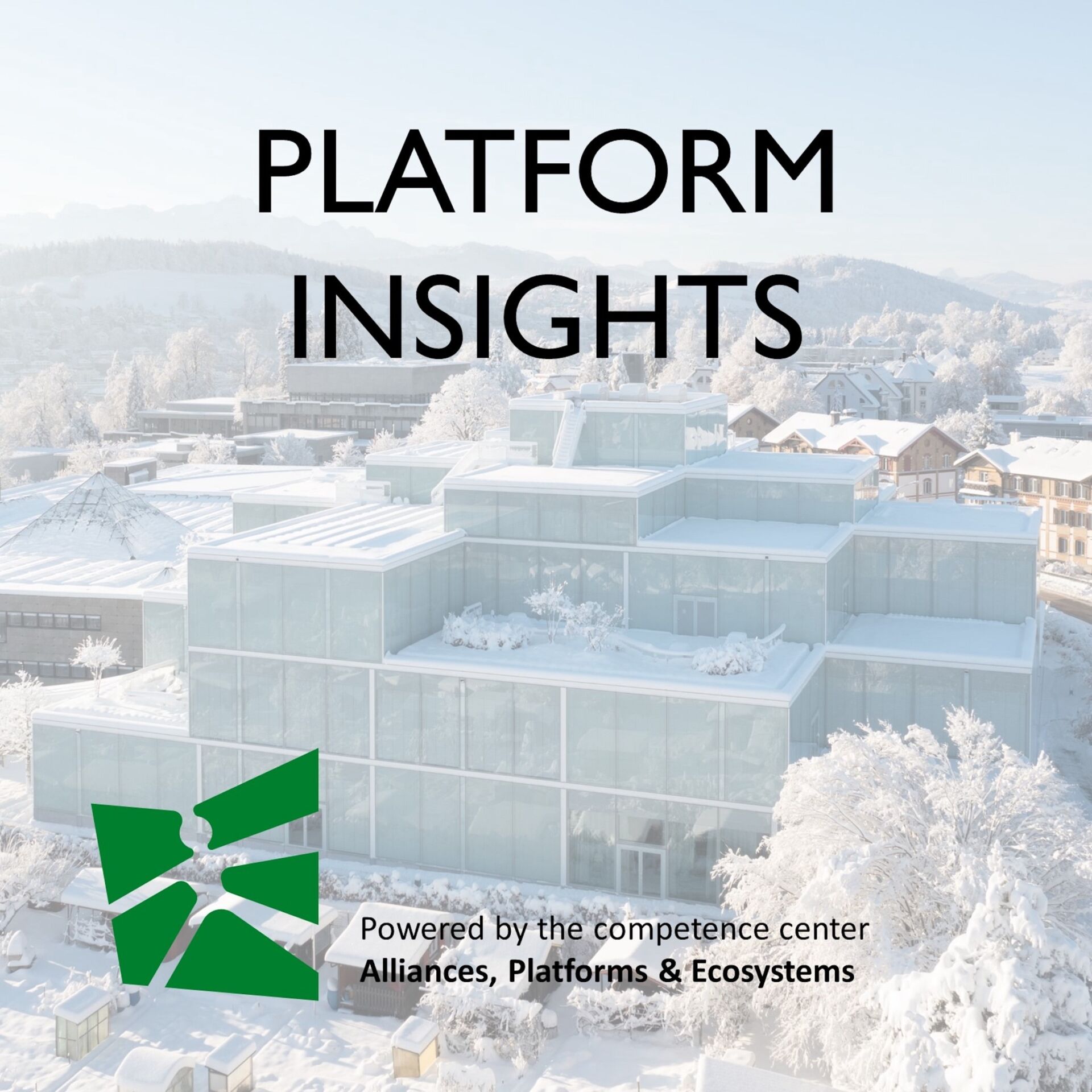Competence Center Alliances, Platforms & Ecosystems

Alliances, platforms, and ecosystems as drivers for the realization of innovative value propositions
The Competence Center Alliances, Platforms & Ecosystems connects interdisciplinary researchers from the University of St.Gallen with partner organizations from industry and society. This holistic approach enables us to analyze customers’ wishes for more complex, integrated solutions instead of standardized products and services and to develop innovative solutions. These so-called ecosystems of interconnected actors who collaborate to realize innovative, customer-oriented solutions without necessarily being hierarchically organized, are expected to account for $80 trillion of global gross domestic product by 2030 (McKinsey, 2022).
We deal with questions at the ecosystem level:
- How do ecosystems emerge, grow and decline?
- What roles do individual companies play in an ecosystem?
- When is it best to enter an ecosystem and when to leave it?
We also study the strategic decisions and transformations of companies in an ecosystem context:
- How do you make strategic decisions that affect ecosystems?
- How to organize effectively in ecosystems?
- What changes are necessary in established companies that are confronted with ecosystems?
Our offering
Our competence center offers a wide range of services in the field of alliances, platforms, and ecosystems. Thanks to our linkage to the University of St.Gallen, we blend cutting-edge research with practical applications.
For companies, we offer in-house training such as customized programs, workshops, and seminars. Individuals can choose from a variety of executive education courses. Corporate collaborations are also possible, which are specially developed for companies that would like to work with us in the medium- to long-run.
Benefit from the many years of experience of our competence center!
In-house executive education
The center offers seminars, customized programs, and workshops for companies that want to grow through (platform-) ecosystem-based business models. Beyond classic strategies and mechanisms of growth, we enable ways to innovate through product- or service-oriented business models towards an integrated, customer- and solution-oriented thinking.
Our approach is as follows:
1. Analysis
In a free 2-hour workshop, we define the status quo, your goals, the target group, the desired topics, and the further approach together.
2. Conception
In close coordination with you, we develop an executive education program – tailored to your needs.
3. Implementation
Before the program begins, all participants get access to the learning platform. Expectations are picked up and preparation tasks are set. The program execution is interactive and practice-oriented, the contents are always research-based and tested in practice.
4. Transfer & Evaluation
After the program, we ensure through multiple-choice tests, lessons learned, or transfer projects that the participants can successfully apply the newly acquired knowledge and the new methods in their day-to-day business.
Corporate collaborations
Currently, the survival rate of all initiated digital platforms and ecosystems is between 15-25%. For alliances, the survival rate is about 30-40%. We are happy to support you on a medium- to long-term basis within the framework of corporate collaborations. The competence center aims to initiate an effective exchange between academia and business, focusing on strategic management in the context of alliances, platforms, and ecosystems. We support this by processing best practices and working together with our partners to avoid mistakes in the strategic management of alliances, platforms, and ecosystems. Together we combine the latest findings from science and practice to ensure the success of your practical projects.
Our partners

Testimonials

«The exchange between academia and practical application is essential for progress and market impact. We greatly value our ties with the competence center alliances, digital platforms and ecosystems.»
Dominik Temerowski, VP Alliance Management, Swisscom
«We are happy to leverage the unique expertise and experience of the University of St.Gallen to further refine our ecosystem in a series of workshops. The competence center on Alliances, Platforms and Ecosystems of the Institute of Management and Strategy is of great value to us when applying cutting-edge theoretical insights into practice.»
Christine Platiel, COO, LiveWell by Zurich Insurance Group


Podcast: Platform Insights
Listen in as we talk about the latest findings from our research on alliances, platforms & ecosystems.
Our team
Executive Director















